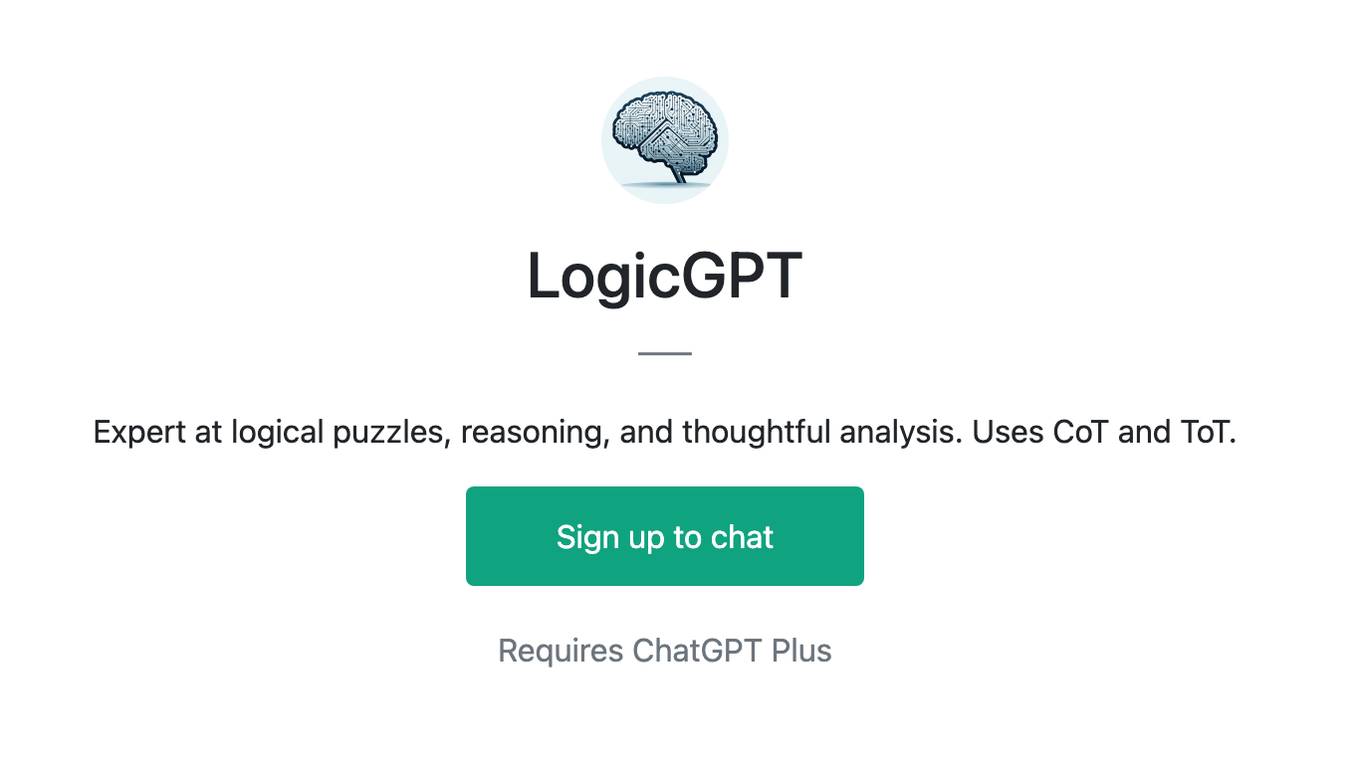Best AI tools for< Research Logic >
20 - AI tool Sites
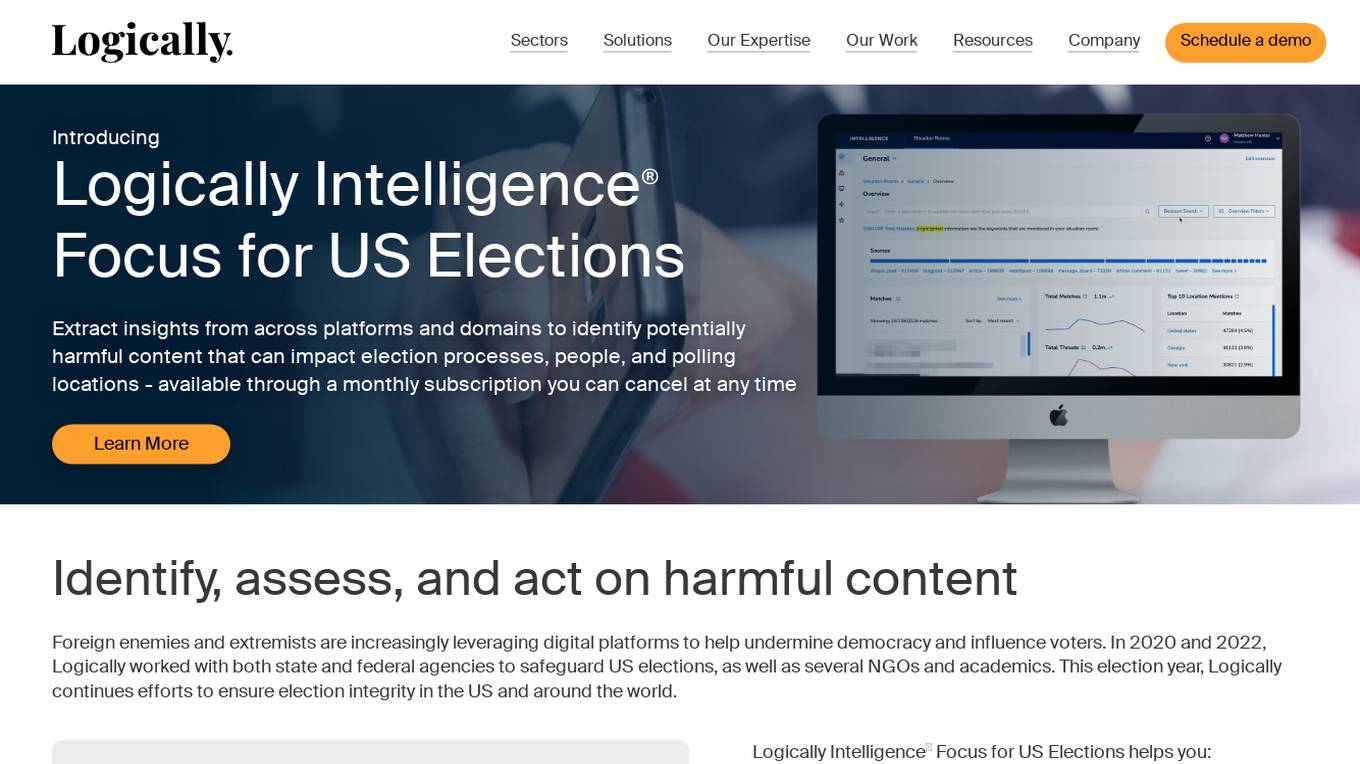
Logically
Logically is an AI-powered platform that helps governments, NGOs, and enterprise organizations detect and address harmful and deliberately inaccurate information online. The platform combines artificial intelligence with human expertise to deliver actionable insights and reduce the harms associated with misleading or deceptive information. Logically offers services such as Analyst Services, Logically Intelligence, Point Solutions, and Trust and Safety, focusing on threat detection, online narrative detection, intelligence reports, and harm reduction. The platform is known for its expertise in analysis, data science, and government affairs, providing solutions for various sectors including Corporate, Defense, Digital Platforms, Elections, National Security, and NGO Solutions.
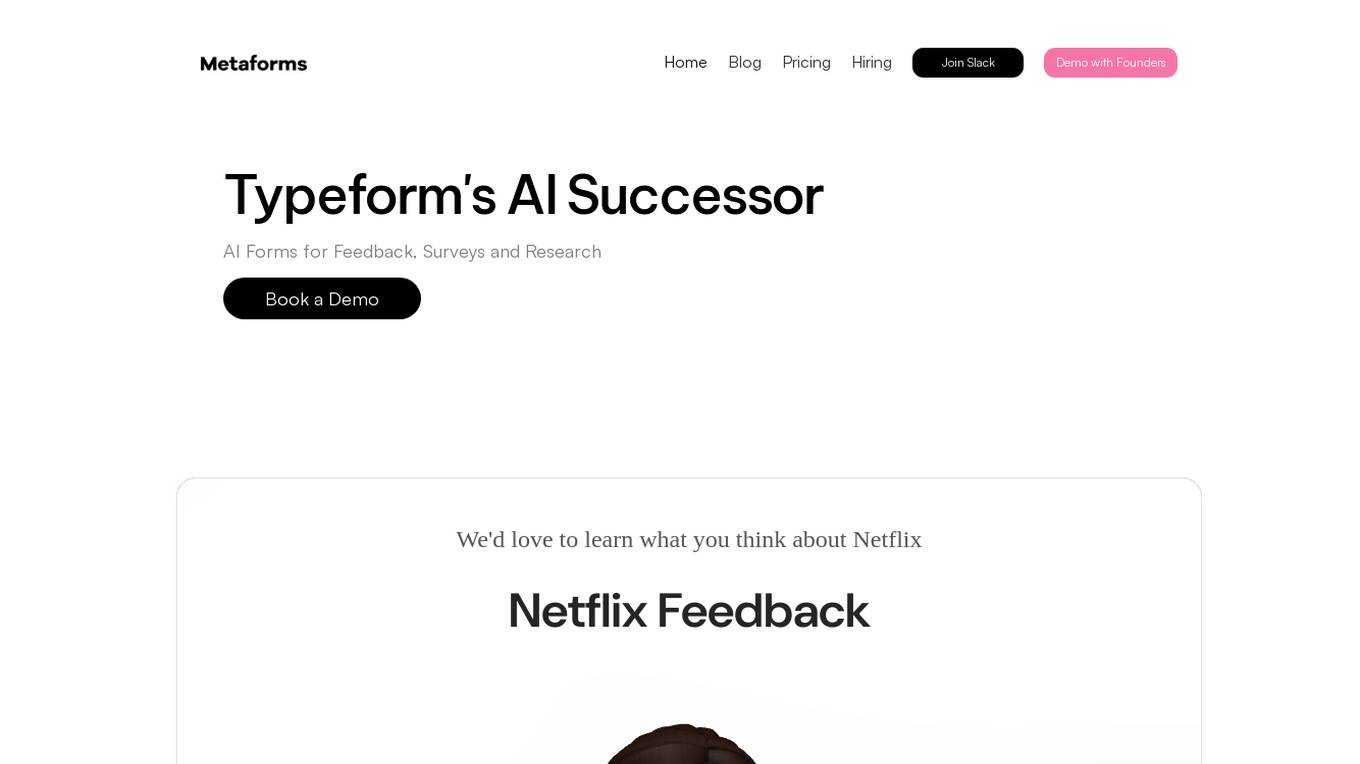
Metaforms
Metaforms is an AI-powered form builder that helps businesses create personalized and engaging forms. It uses AI to automatically generate conditions, logics, and branching, which can save businesses up to 85% in setup time. Metaforms also uses AI to provide real-time question framing and acknowledgements, which can increase completion rates by up to 30%. Additionally, Metaforms' AI can ask follow-up questions based on other user responses in a cohort, which can provide businesses with more insights about user behavior, intent, and preferences.

Skeptic Reader
Skeptic Reader is a Chrome plugin that helps users detect bias and logical fallacies in real-time while browsing the internet. It uses GPT-4 technology to identify potential biases and fallacies in news articles, social media posts, and other online content. The plugin provides users with counter-arguments and suggestions for further research, helping them to make more informed decisions about the information they consume. Skeptic Reader is designed to promote critical thinking and media literacy, and it is a valuable tool for anyone who wants to navigate the online world with a more discerning eye.

Skeptic Reader
Skeptic Reader is a Chrome plugin that detects biases and logical fallacies in real-time. It's powered by GPT4 and helps users to critically evaluate the information they consume online. The plugin highlights biases and fallacies, provides counter-arguments, and suggests alternative perspectives. It's designed to promote informed skepticism and encourage users to question the information they encounter online.

GuidedTrack
GuidedTrack is a versatile platform that allows users to create apps, surveys, educational modules, studies, tools, and prototypes without the need to hire a programmer. It caters to a wide range of users including agencies, marketers, researchers, educators, entrepreneurs, and anyone with an idea. The platform offers a user-friendly interface with advanced features such as skip logic, looping, multimedia content, automatic data collection, and more. GuidedTrack is praised for its flexibility, efficiency, and simplicity, making it an ideal choice for various projects and research endeavors.

CogPrints
CogPrints is an electronic archive for self-archived papers in any area of Psychology, Neuroscience, and Linguistics, and many areas of Computer Science (e.g., artificial intelligence, robotics, vision, learning, speech, neural networks), Philosophy (e.g., mind, language, knowledge, science, logic), Biology (e.g., ethology, behavioral ecology, sociobiology, behavior genetics, evolutionary theory), Medicine (e.g., Psychiatry, Neurology, human genetics, Imaging), Anthropology (e.g., primatology, cognitive ethnology, archeology, paleontology), as well as any other portions of the physical, social and mathematical sciences that are pertinent to the study of cognition.
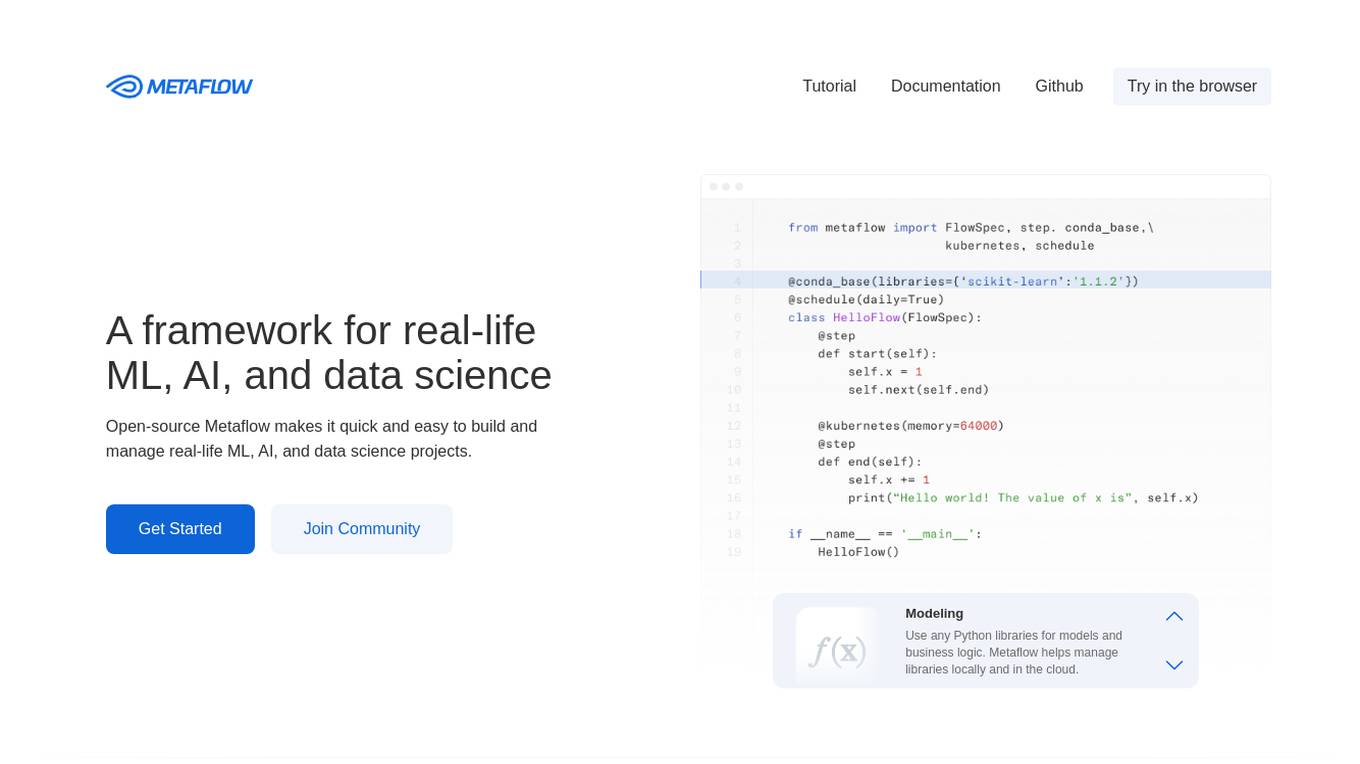
Metaflow
Metaflow is an open-source framework for building and managing real-life ML, AI, and data science projects. It makes it easy to use any Python libraries for models and business logic, deploy workflows to production with a single command, track and store variables inside the flow automatically for easy experiment tracking and debugging, and create robust workflows in plain Python. Metaflow is used by hundreds of companies, including Netflix, 23andMe, and Realtor.com.

Simulai
Simulai is an open-source conversational form builder that allows users to create interactive surveys and forms that feel like natural conversations. It is inspired by the simplicity of Notion and is completely free to use. With Simulai, users can easily add logic, choose from a list of templates, and host their forms on their own servers or use Simulai's free cloud hosting services.

Deformity
Deformity is an AI-driven platform that offers conversational forms to engage and captivate audiences at scale. It allows users to create forms in seconds, utilize AI for lead generation and qualification, collect feedback, design quizzes and giveaways, and conduct research. With the ability to speak 120+ languages fluently, Deformity provides a seamless experience for global audiences. Users can customize forms to match their brand identity, add logic effortlessly, and access advanced features like submission period control and submission limits. Deformity aims to streamline form creation and data collection processes while offering flexibility and efficiency.

Z.ai
Z.ai is a free AI chatbot and agent powered by GLM-5 and GLM-4.7. It provides users with an interactive platform to engage with AI technology for various purposes. The chatbot is designed to assist users in answering questions, providing information, and offering personalized recommendations. With advanced algorithms and machine learning capabilities, Z.ai aims to enhance user experience and streamline communication processes.
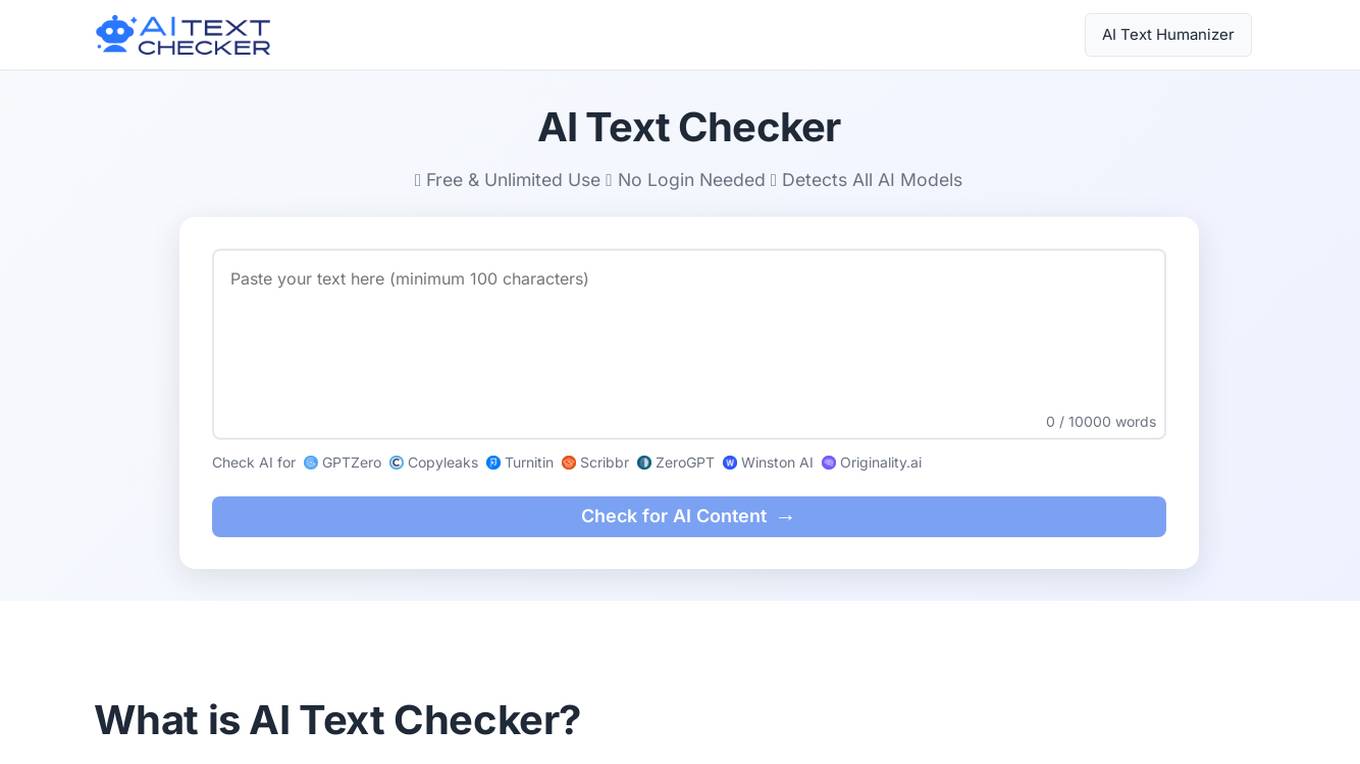
AI Text Checker
The AI Text Checker is an advanced tool designed to detect AI-generated content from popular models such as ChatGPT, GPT4, Gemini, Claude, and LLAMA. It utilizes cutting-edge algorithms to analyze text and identify patterns characteristic of AI-generated text. Users can leverage this tool to verify the authenticity of text and distinguish between human-written and AI-generated content, making it a valuable resource for content creators, researchers, and individuals concerned about the proliferation of AI-generated content online.
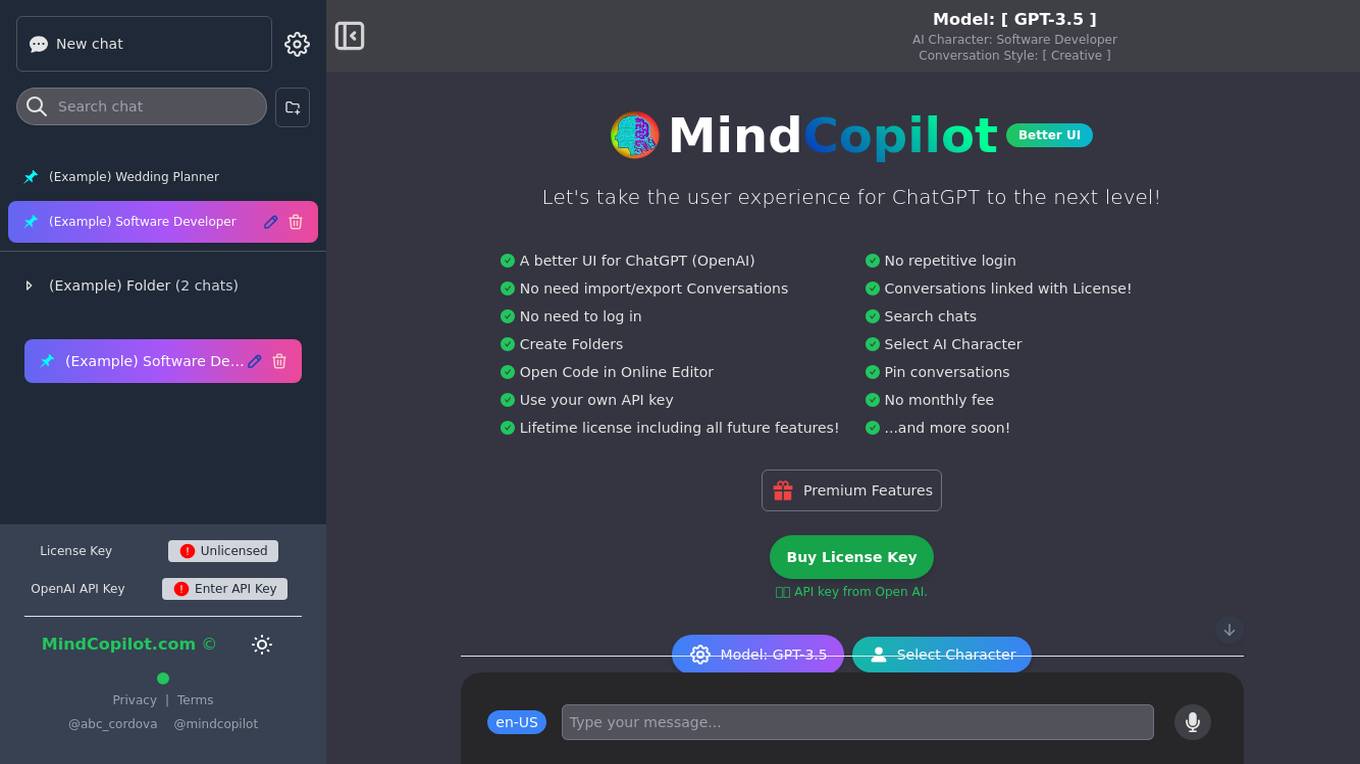
MindCopilot
MindCopilot is an AI tool designed to enhance the user experience of ChatGPT by providing a better UI. It offers features like no repetitive login, conversations linked with license, creating folders, selecting AI characters, and using your own API key. Users can enjoy a lifetime license with all future features included. The tool aims to simplify the process of interacting with ChatGPT and improving the overall user experience for software developers, wedding planners, and other professionals.
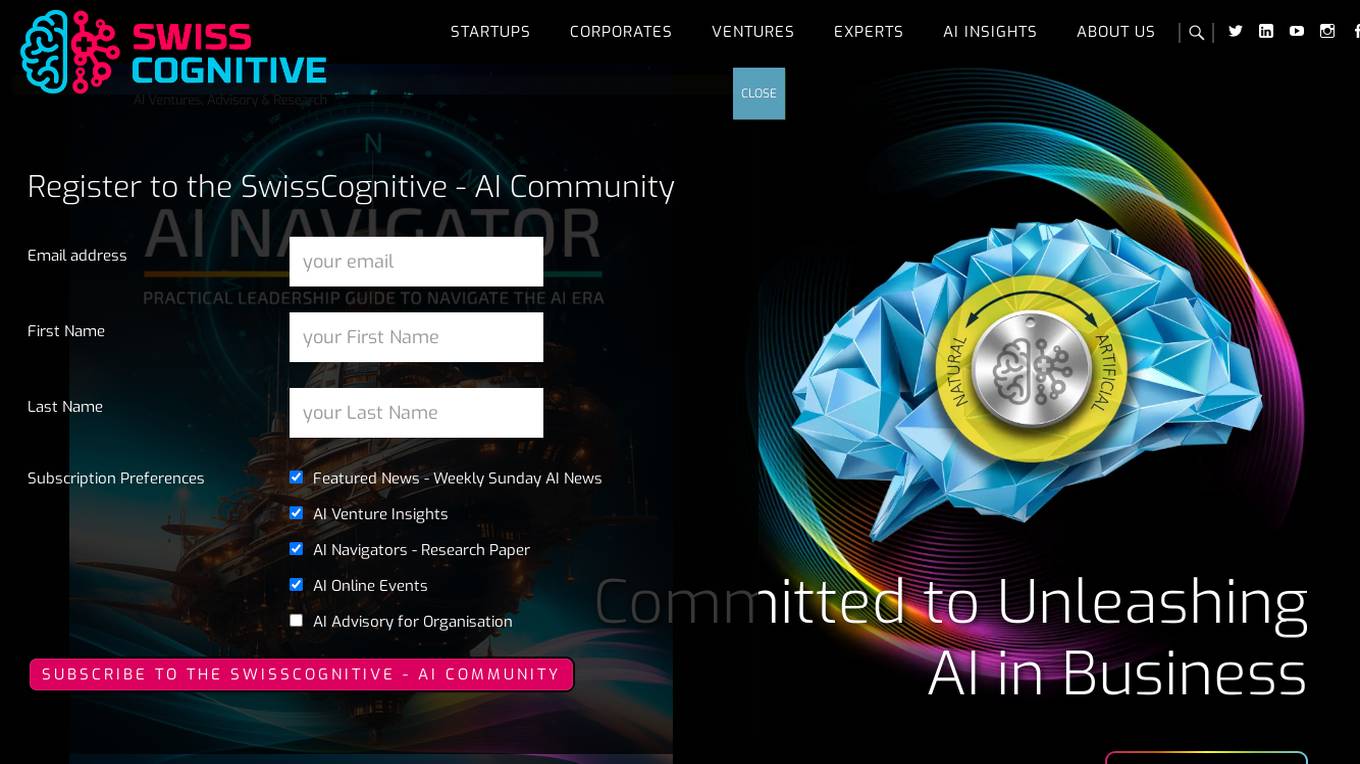
SwissCognitive
SwissCognitive is a global AI hub that provides answers to questions related to Artificial Intelligence (AI). The platform connects industries, companies, executives, and technology experts, aiming to align politicians, governments, organizations, and groups in the AI world. SwissCognitive offers insights, news, events, and initiatives in various sectors such as primary & secondary, research & government, media & marketing, high tech & life science, energy & logistics, and cyber & defense & ICT. The platform is committed to unleashing AI in business and features a diverse range of content related to AI ventures, advisory, and research.

Trade Foresight
Trade Foresight is a data and AI-driven platform that helps businesses expand and grow their operations globally. It provides users with access to a global trade database, market intelligence, and AI-powered tools to identify opportunities, connect with partners, and facilitate trade transactions. With Trade Foresight, businesses can gain insights into global trade trends, regulations, and opportunities, and make informed decisions to optimize their international expansion strategies.
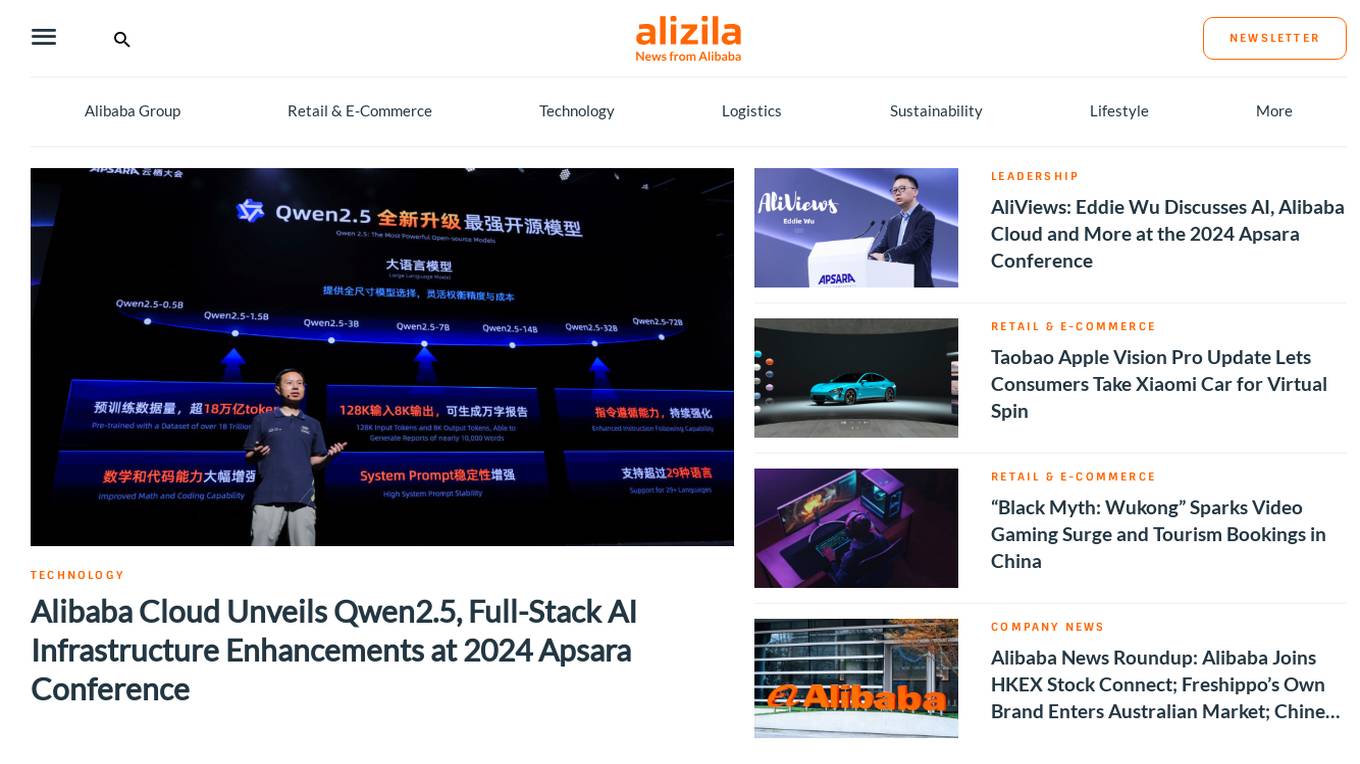
Alizila
Alizila is Alibaba Group's Digital Newsroom that provides the latest news and updates on Alibaba Group's businesses, investments, leadership, culture, technology, retail, e-commerce, cloud services, fintech, emerging tech, logistics, sustainability, lifestyle, travel, wellness, sports, entertainment, and more. The platform covers a wide range of topics related to Alibaba's activities and innovations, including AI infrastructure enhancements, retail updates, company news, technology advancements, and sustainability initiatives.

Airtop
Airtop is a browser automation tool designed for AI agents, allowing users to automate web tasks using natural language commands. It offers inexpensive and scalable AI-powered cloud browsers, enabling effortless scraping and control of any website. Airtop simplifies the process of managing cloud browser infrastructure, freeing users to focus on their core business activities. The tool supports a wide range of use cases, including automating tasks that were previously challenging, such as interacting with sites behind logins and virtualizing the DOM.
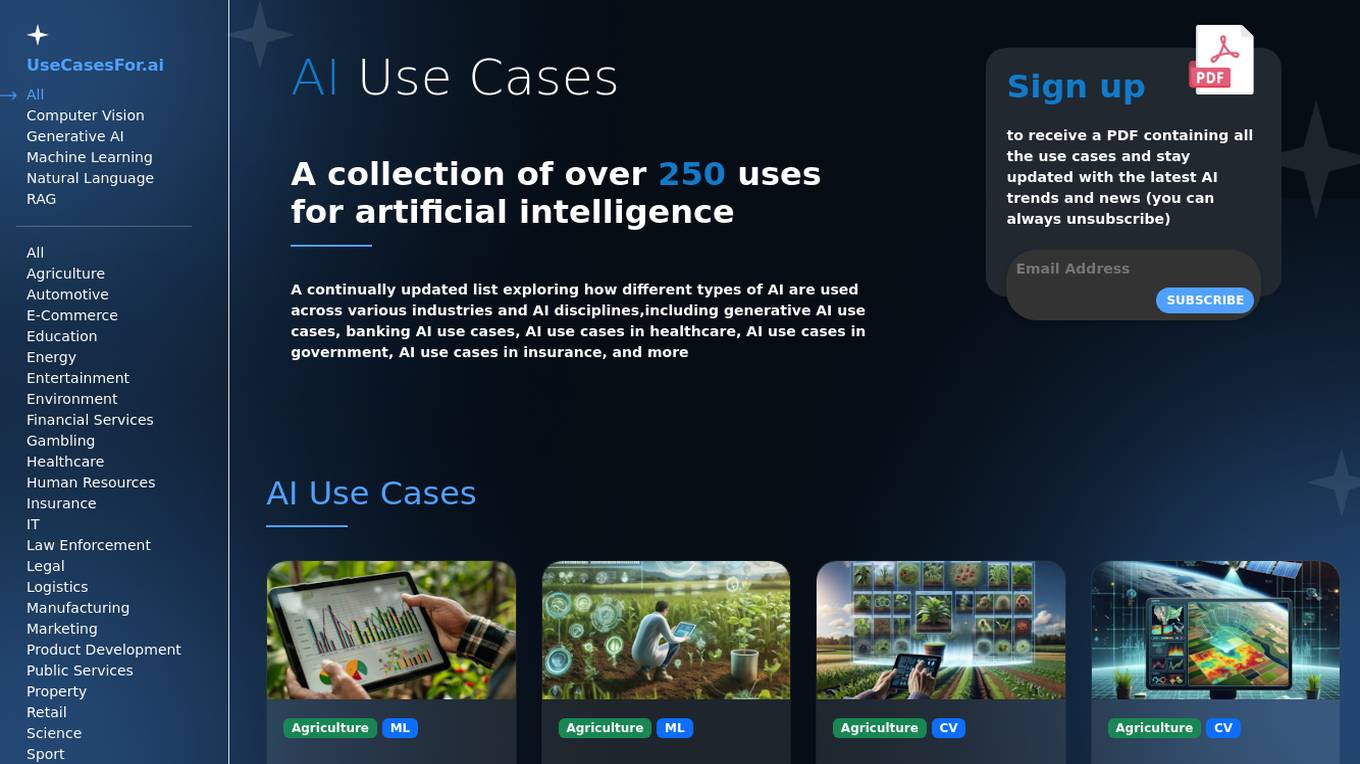
UseCasesFor.ai
UseCasesFor.ai is an AI application that offers a collection of over 250 use cases for artificial intelligence across various industries and disciplines. It provides insights into how different types of AI, such as computer vision, generative AI, machine learning, and natural language processing, are utilized in fields like agriculture, automotive, e-commerce, education, energy, entertainment, finance, healthcare, human resources, insurance, IT, law enforcement, legal, logistics, manufacturing, marketing, product development, public services, property, retail, science, sport, telecommunications, transport, tourism, and wildlife. The platform also allows users to sign up to receive a PDF containing all the use cases and stay updated with the latest AI trends and news.

SwissCognitive
SwissCognitive is a global AI hub that provides answers to questions related to Artificial Intelligence (AI). The platform connects industries, companies, executives, and technology experts, aiming to align politicians, governments, organizations, and groups in the AI world. SwissCognitive offers insights, news, events, and initiatives in various sectors such as primary & secondary, research & government, media & marketing, high tech & life science, energy & logistics, and cyber & defense. The platform is committed to unleashing AI in business and fostering AI adoption across industries.

Google Research
Google Research is a leading research organization focusing on advancing science and artificial intelligence. They conduct research in various domains such as AI/ML foundations, responsible human-centric technology, science & societal impact, computing paradigms, and algorithms & optimization. Google Research aims to create an environment for diverse research across different time scales and levels of risk, driving advancements in computer science through fundamental and applied research. They publish hundreds of research papers annually, collaborate with the academic community, and work on projects that impact technology used by billions of people worldwide.

Google Research
Google Research is a team of scientists and engineers working on a wide range of topics in computer science, including artificial intelligence, machine learning, and quantum computing. Our mission is to advance the state of the art in these fields and to develop new technologies that can benefit society. We publish hundreds of research papers each year and collaborate with researchers from around the world. Our work has led to the development of many new products and services, including Google Search, Google Translate, and Google Maps.
0 - Open Source AI Tools
20 - OpenAI Gpts
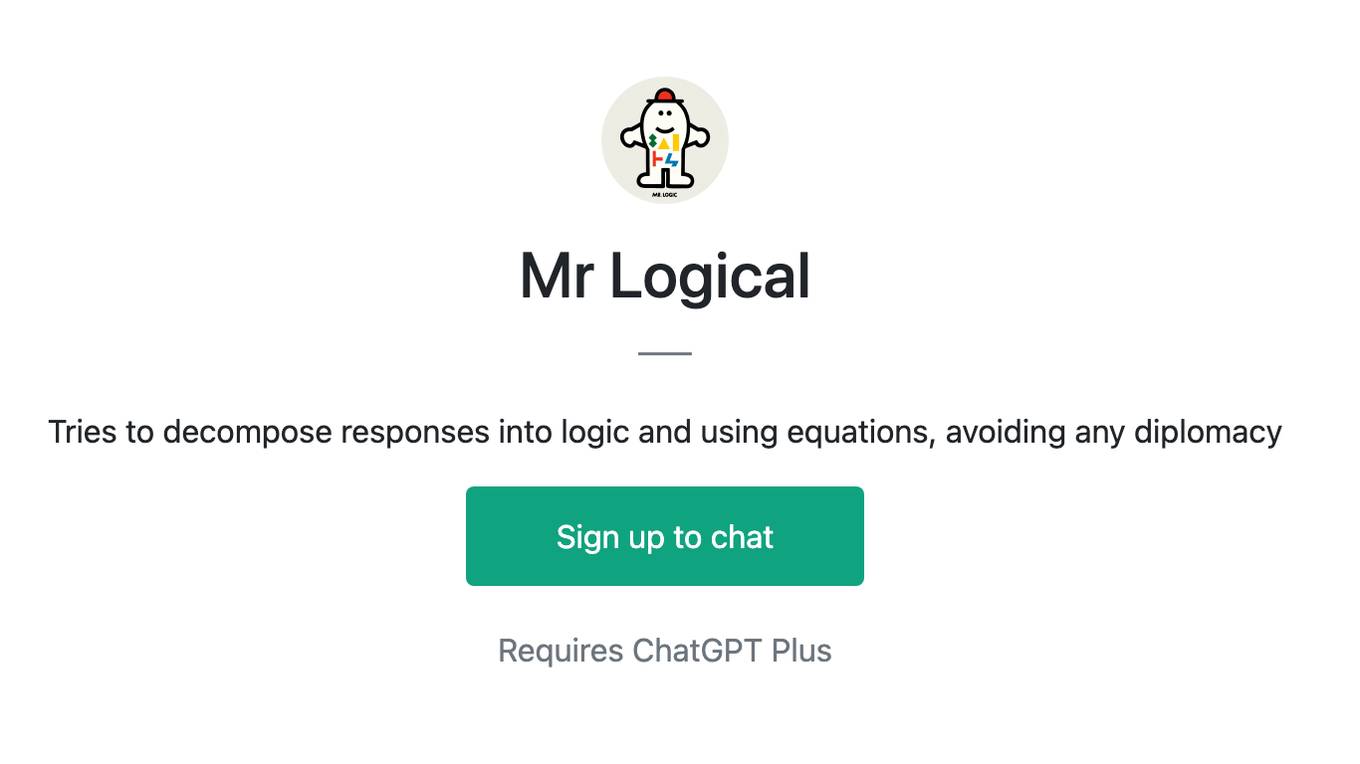
Mr Logical
Tries to decompose responses into logic and using equations, avoiding any diplomacy
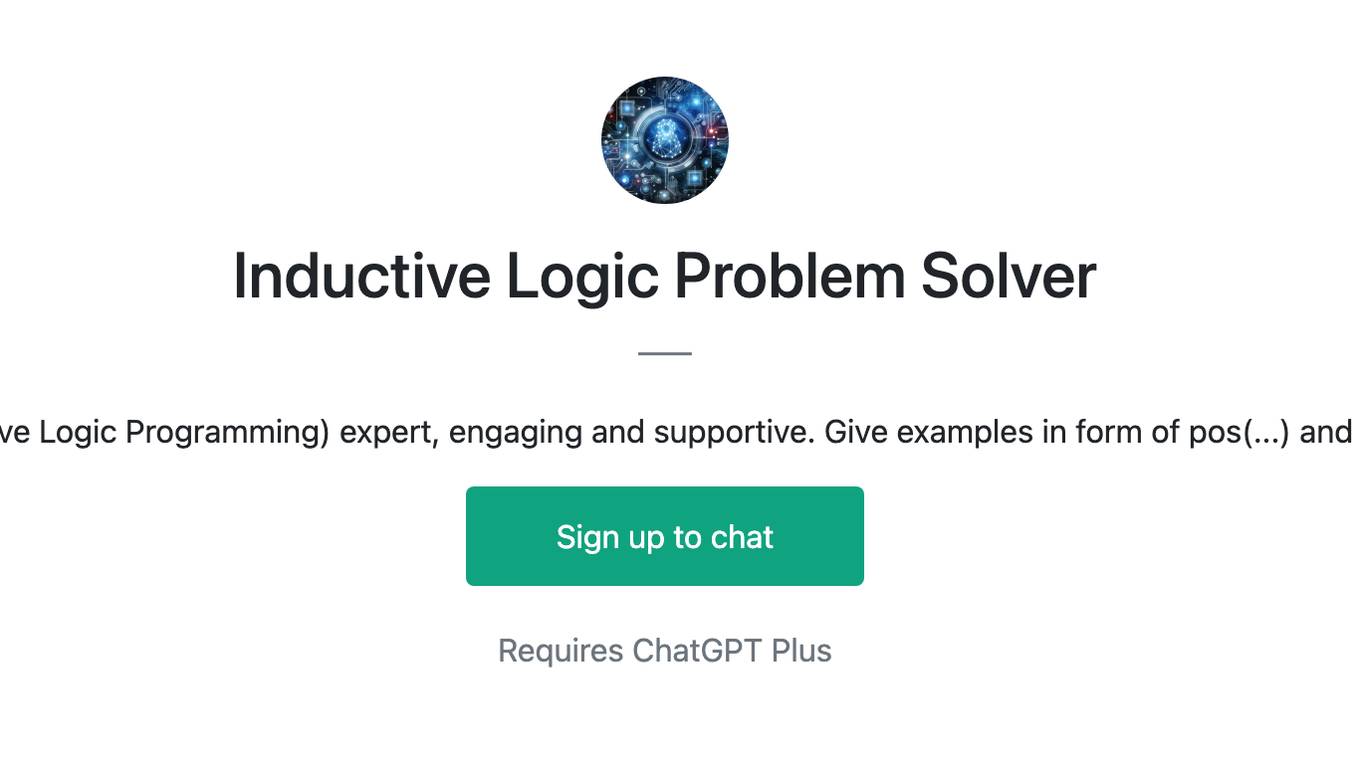
Inductive Logic Problem Solver
Friendly ILP (Inductive Logic Programming) expert, engaging and supportive. Give examples in form of pos(...) and neg(...) examples.
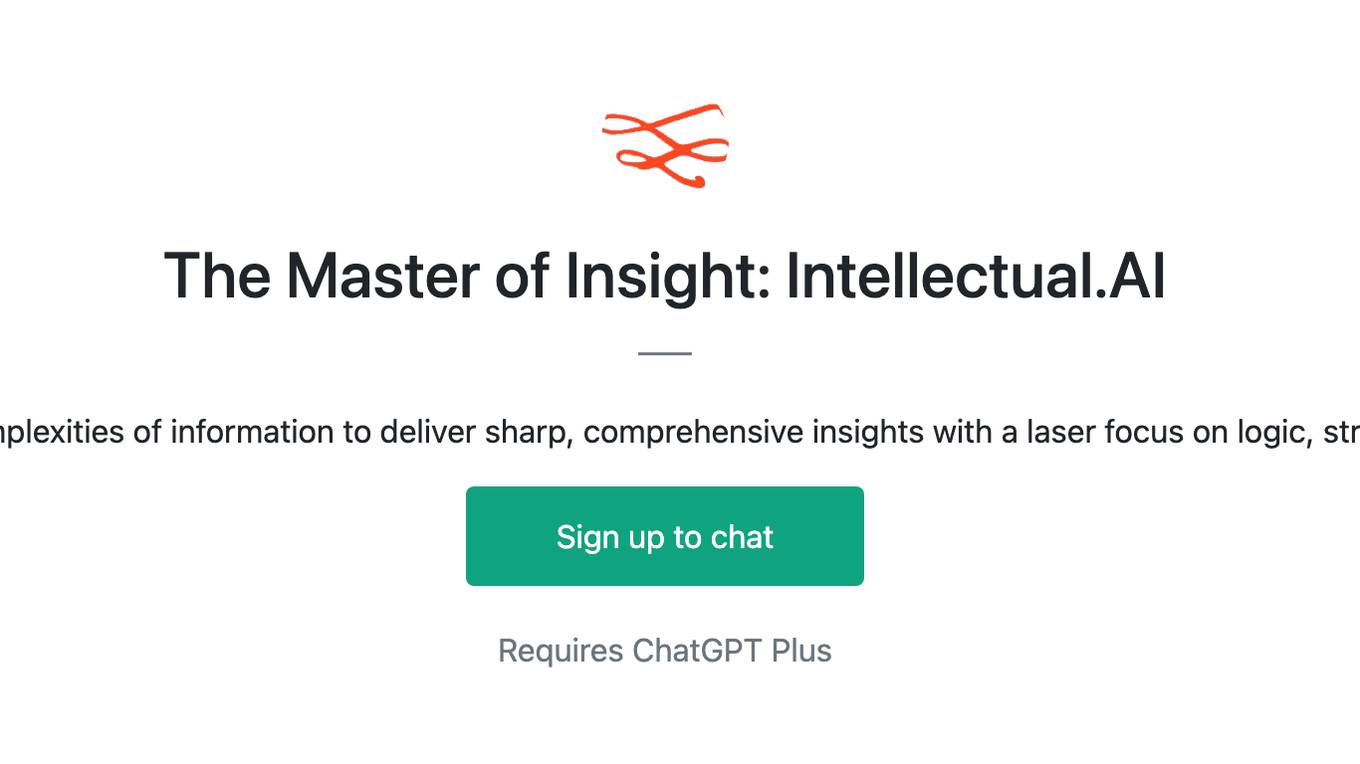
The Master of Insight: Intellectual.AI
Intellectual.AI slices through the complexities of information to deliver sharp, comprehensive insights with a laser focus on logic, structure, and cross-domain analysis
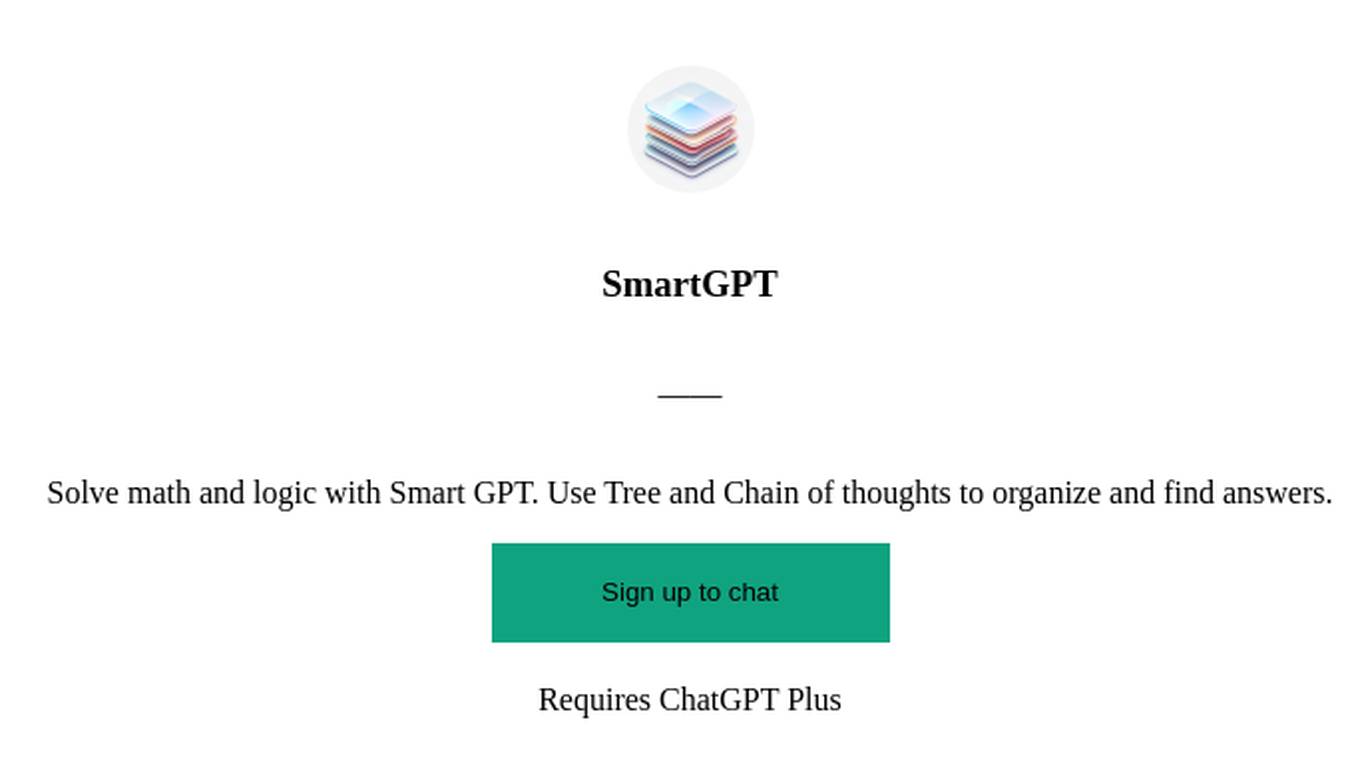
SmartGPT
Solve math and logic with Smart GPT. Use Tree and Chain of thoughts to organize and find answers.
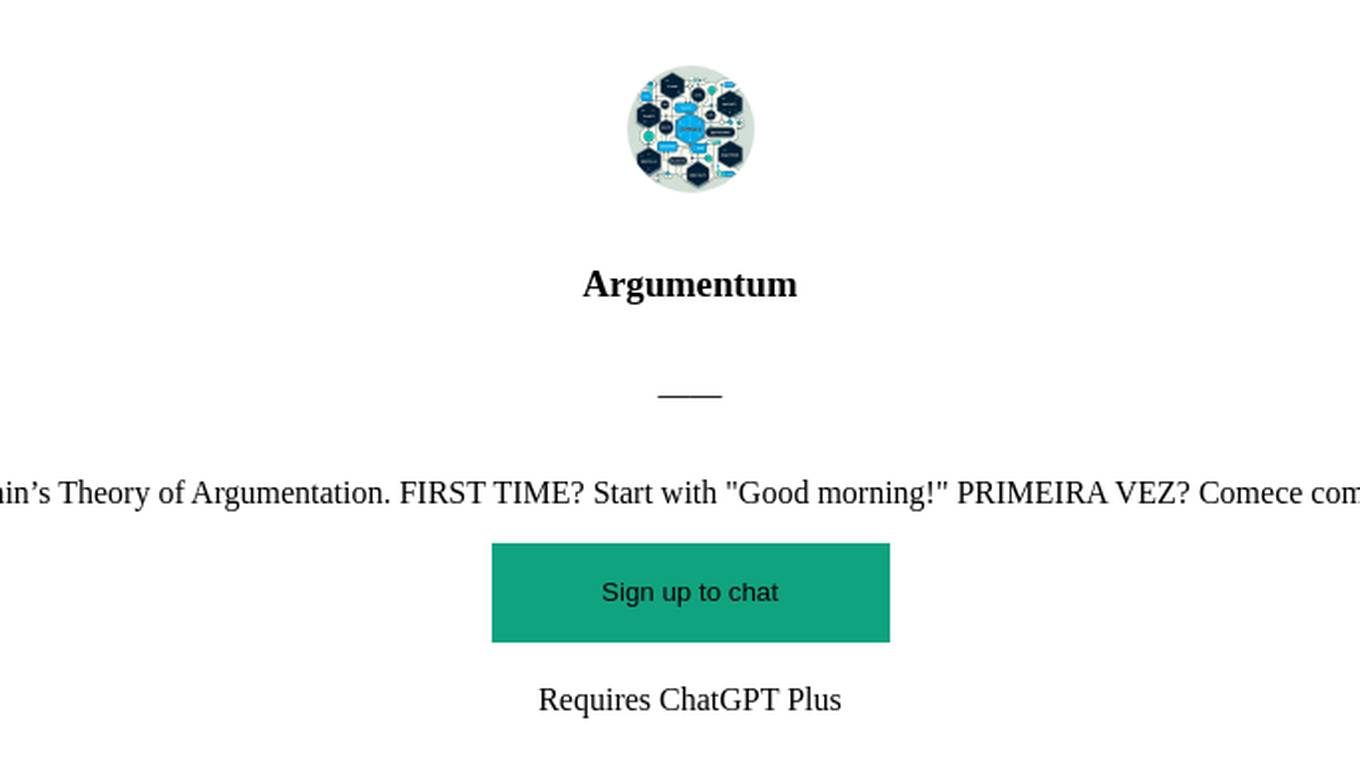
Argumentum
Stephen Toulmin’s Theory of Argumentation. FIRST TIME? Start with "Good morning!" PRIMEIRA VEZ? Comece com um "Bom dia!"

Philosophy Mentor
A Philosophy professor delving into ideas, history, and philosophers' lives.

老板经营哲学(等于你从麦肯锡聘用了一个咨询顾问,进一步咨询请加微信:415818818)
无论是深挖细节、跨领域思考,还是逻辑分析、心理探讨,我都能给你来一套。给到你的不仅仅是表面的回答,而是那种深到骨髓的洞察力
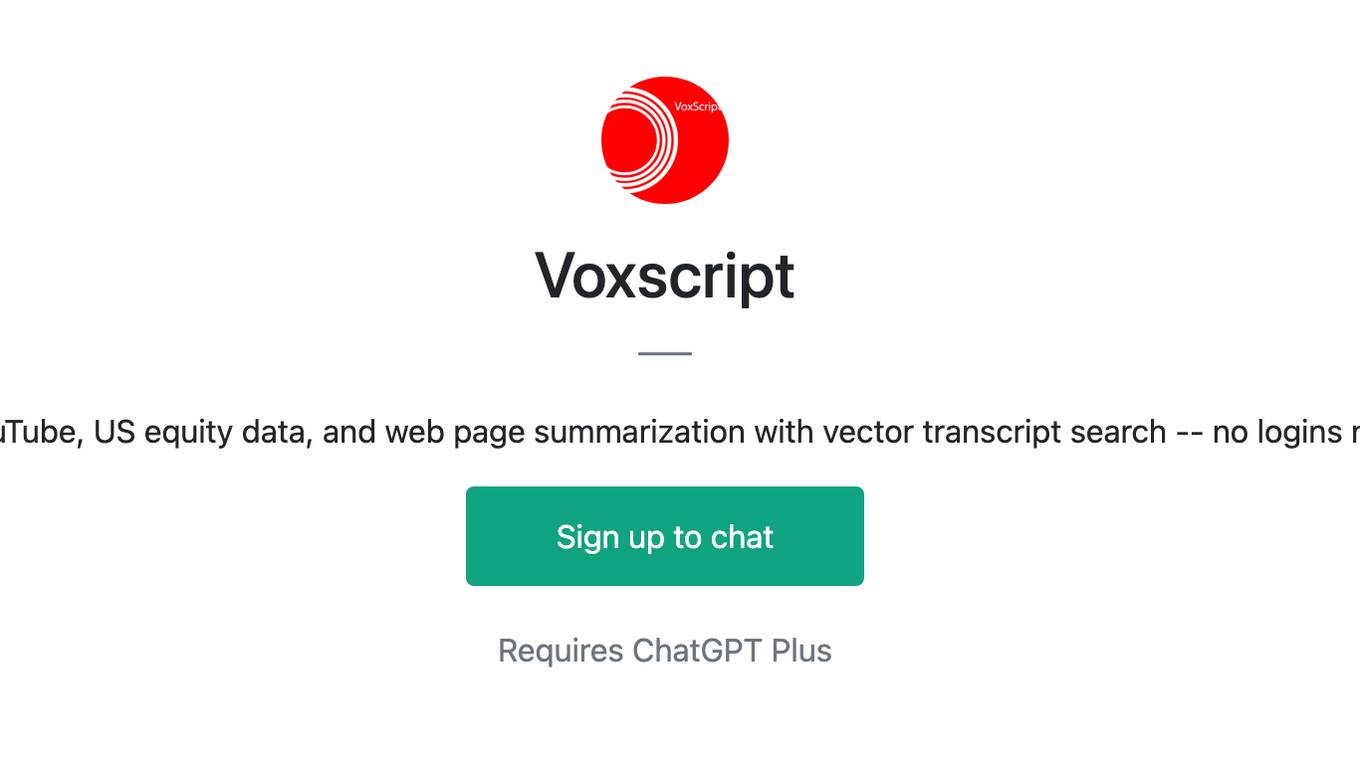
Voxscript
Quick YouTube, US equity data, and web page summarization with vector transcript search -- no logins needed.
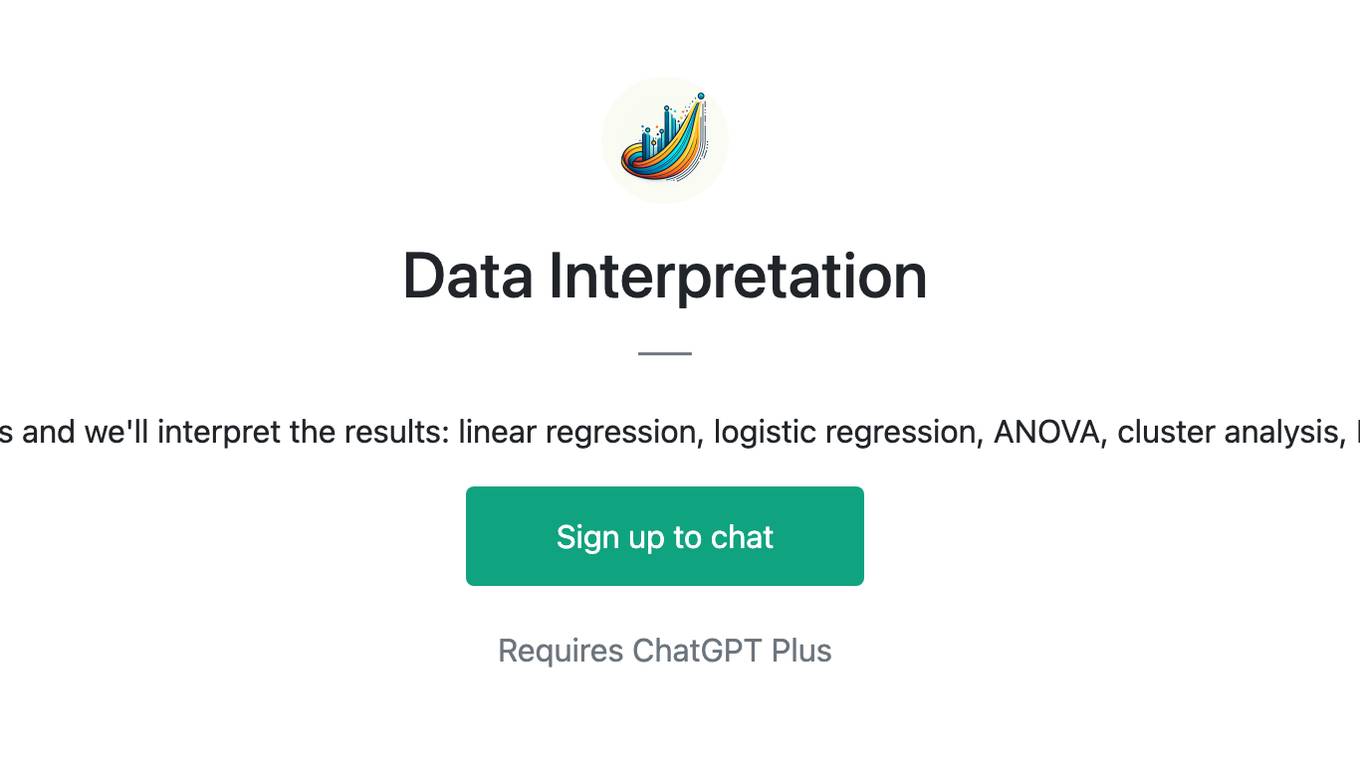
Data Interpretation
Upload an image of a statistical analysis and we'll interpret the results: linear regression, logistic regression, ANOVA, cluster analysis, MDS, factor analysis, and many more
Harbor
Nautical and informative expert on harbors, their functions, and significance in trade.

